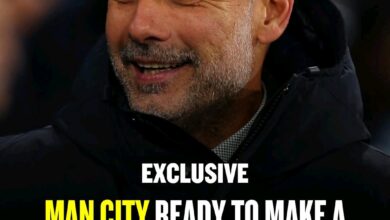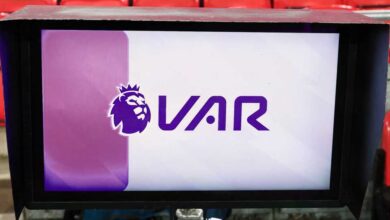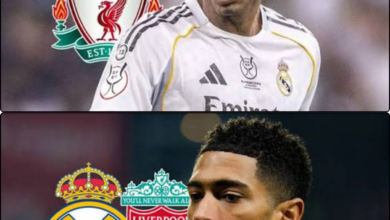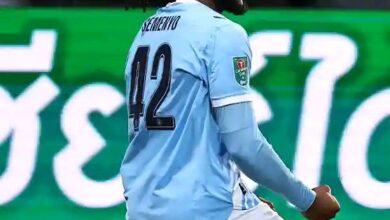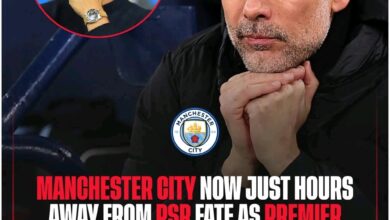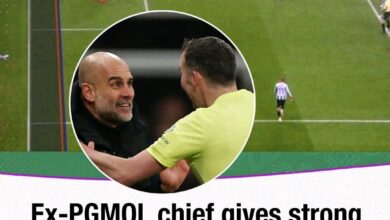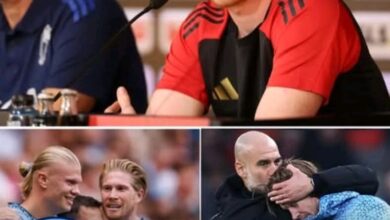Manchester City Transfer Drama: The Nico Gonzalez Saga – A Comprehensive Analysi

In the ever-evolving landscape of modern football, few stories capture the unpredictable nature of the transfer market quite like the emerging saga surrounding Nico Gonzalez at Manchester City. Just months after arriving at the Etihad Stadium in a high-profile £50 million transfer from FC Porto, the talented Spanish midfielder finds himself at the center of an unexpected twist that has sent shockwaves through the footballing world. What was initially hailed as a shrewd acquisition by Pep Guardiola and Manchester City’s recruitment team has now transformed into one of the most intriguing transfer stories of the current window.
The 23-year-old midfielder’s journey from being a coveted signing to potentially departing the club represents a fascinating case study in the ruthless efficiency of modern football, where even substantial investments can quickly become expendable if circumstances change. This dramatic turn of events not only highlights the precarious nature of professional football careers but also demonstrates how quickly the dynamics within elite clubs can shift, leaving players who were once considered essential suddenly finding themselves surplus to requirements.
When Nico Gonzalez completed his move from FC Porto to Manchester City during the January transfer window, the transfer was met with considerable fanfare and optimism. The £50 million fee represented a significant investment in a player who had consistently impressed in the Portuguese Primeira Liga and European competitions. Guardiola’s decision to pursue Gonzalez was driven by a clear tactical need – the requirement for reliable cover for Rodri, whose importance to City’s system had become increasingly apparent.
At the time of his signing, Gonzalez was viewed as the perfect solution to a persistent problem that had plagued Manchester City in recent seasons. Rodri’s absence from the team, whether through injury, suspension, or rotation, had often exposed vulnerabilities in City’s midfield structure. The Spanish international’s unique combination of defensive solidity, technical ability, and tactical intelligence made him an ideal candidate to fill this crucial role.
The transfer itself was conducted with the usual efficiency that has become synonymous with Manchester City’s operations in the modern era. Porto, despite their reluctance to lose such a talented player, were ultimately persuaded by the substantial fee offered by the Premier League champions. Gonzalez’s arrival was accompanied by significant media attention, with many pundits and analysts praising the signing as another example of City’s strategic planning and forward-thinking approach to squad building.
The expectations surrounding Gonzalez’s integration into Guardiola’s system were considerable. His technical attributes, including his excellent passing range, tactical awareness, and defensive capabilities, seemed perfectly suited to the demands of playing in City’s sophisticated possession-based system. Many observers believed that his transition would be relatively seamless, given his experience at the highest level and his apparent compatibility with Guardiola’s tactical philosophy
Pep Guardiola’s influence on Manchester City’s tactical approach cannot be overstated, and his role in the current situation surrounding Nico Gonzalez provides crucial context for understanding how rapidly circumstances can change at elite football clubs. The Catalan manager’s relentless pursuit of tactical perfection and his willingness to adapt his approach based on available personnel has long been a hallmark of his coaching philosophy.
When Gonzalez arrived at the Etihad, Guardiola’s tactical setup seemed perfectly suited to accommodate the Spanish midfielder’s skillset. The need for a reliable deputy to Rodri had been identified as a priority, and Gonzalez’s profile suggested he could seamlessly slot into this role when required. However, football’s unpredictable nature meant that circumstances would soon change in ways that nobody could have anticipated.
Guardiola’s tactical flexibility has always been one of his greatest strengths, but it can also create challenges for players who find themselves on the periphery of his constantly evolving system. The manager’s tendency to experiment with different formations, player combinations, and tactical approaches means that even established players can suddenly find their positions under threat. For a newcomer like Gonzalez, this environment can be particularly challenging to navigate.
The Spanish midfielder’s limited integration into Guardiola’s first-team plans raises questions about the communication and expectations that existed at the time of his signing. While it’s impossible to know the exact details of conversations between the player, his representatives, and the club’s hierarchy, the current situation suggests that either circumstances changed dramatically after his arrival, or there were misunderstandings about his likely role within the squad.
The arrival of Dutch international Tijjani Reijnders has proven to be the catalyst that fundamentally altered Nico Gonzalez’s prospects at Manchester City. This unexpected development highlights how quickly the dynamics within a football squad can shift, and how one successful signing can have far-reaching consequences for other players within the same position.
Reijnders’ rapid integration into Guardiola’s setup has been nothing short of remarkable. The Dutch midfielder’s ability to quickly understand and implement the complex tactical requirements of playing in City’s system has clearly impressed both the coaching staff and his teammates. His technical ability, combined with his tactical intelligence and work rate, has made him an immediate favorite of Guardiola’s, who has always valued players who can adapt quickly to his demanding style of play.
The impact of Reijnders’ success extends far beyond his individual performances. His partnership with Rodri has provided Manchester City with a midfield combination that appears to offer everything Guardiola desires – defensive stability, creative distribution, and the ability to control the tempo of matches. This partnership has effectively displaced Gonzalez from the tactical picture, creating a situation where the Spanish midfielder finds himself competing for a role that no longer exists in its original form.
The contrast between Reijnders’ rapid integration and Gonzalez’s struggles to establish himself provides a fascinating insight into the factors that determine success at the highest level of football. While both players possess considerable technical ability and tactical awareness, their different approaches to adapting to Guardiola’s system have produced vastly different outcomes. Reijnders’ success has been built on his ability to understand and execute the specific requirements of his role within City’s system, while Gonzalez has struggled to find his place in the evolving tactical landscape
The statistics surrounding Nico Gonzalez’s playing time at Manchester City paint a stark picture of his marginalized status within the squad. His minimal involvement in first-team activities, highlighted by his mere 61 minutes of playing time during the FIFA Club World Cup, represents a damning indictment of his current standing within Guardiola’s plans.
The Club World Cup, traditionally viewed as an opportunity for squad rotation and the integration of fringe players, should have provided Gonzalez with the perfect platform to demonstrate his capabilities. The fact that he managed such limited playing time even during this competition suggests that his position within the squad hierarchy is even more precarious than initially apparent. For a player who cost £50 million and was presumably signed with the intention of regular involvement, this level of marginalization is both surprising and concerning
The limited opportunities afforded to Gonzalez also raise questions about Manchester City’s squad management and the effectiveness of their integration processes for new signings. While it’s true that adapting to Guardiola’s system can be challenging for any player, the extent of Gonzalez’s marginalization suggests that either the initial assessment of his suitability was flawed, or circumstances changed so dramatically that his original role within the squad no longer exists.
The psychological impact of such limited playing time on a player of Gonzalez’s caliber cannot be underestimated. Professional footballers, particularly those who have achieved success at the highest level, are accustomed to regular involvement in their team’s activities. The transition from being a key player at FC Porto to struggling for minutes at Manchester City represents a significant adjustment that can have far-reaching consequences for both confidence and career trajectory.
The emergence of concrete exit talks surrounding Nico Gonzalez represents a pragmatic response to a situation that has become increasingly untenable for all parties involved. Manchester City’s reported willingness to entertain offers for the Spanish midfielder, just months after his arrival, demonstrates the ruthless efficiency that has become characteristic of modern football operations at the highest level.
The club’s approach to exploring potential destinations for Gonzalez has been comprehensive, with representatives reportedly making contact with clubs across Europe and in the Saudi Pro League. This broad approach suggests that City are keen to maximize their options and ensure that any potential departure is handled professionally and efficiently. The inclusion of Saudi Arabian clubs in these discussions is particularly interesting, as it reflects the growing influence of the Saudi Pro League in the global transfer market.
The financial implications of any potential transfer are complex and multifaceted. Manchester City’s £50 million investment in Gonzalez represents a significant outlay that the club will be keen to recoup, at least partially, through any future sale. However, the reality of the transfer market means that players who have struggled to establish themselves at their new clubs often see their market value decrease, regardless of their previous achievements or potential.
The timing of these exit discussions is also significant. The current transfer window represents an opportunity for all parties to resolve the situation quickly and efficiently, allowing Gonzalez to move on to a club where he might have better prospects for regular playing time, while enabling Manchester City to free up squad space and potentially recoup some of their investment.
The Nico Gonzalez situation extends beyond the individual circumstances of one player and raises broader questions about Manchester City’s transfer strategy and squad management. The club’s willingness to invest £50 million in a player who has subsequently struggled to establish himself suggests that even the most sophisticated recruitment operations are not immune to miscalculations.
This situation also highlights the challenges faced by clubs operating at the highest level of football, where the margin for error is minimal and the pressure to succeed is constant. Manchester City’s success in recent years has been built on the foundation of astute recruitment and tactical flexibility, but the Gonzalez case demonstrates that even successful clubs can make decisions that don’t work out as planned.
The broader implications for City’s midfield planning are also worth considering. The club’s midfield structure, which has been so crucial to their success in recent years, continues to evolve as new players are integrated and tactical approaches are refined. The potential departure of Gonzalez, combined with the successful integration of Reijnders, suggests that City’s midfield hierarchy is more fluid than it might have initially appeared.
The situation also raises questions about communication and expectation management within the club. While it’s impossible to know the exact details of conversations between players, agents, and club officials, the current circumstances suggest that there may have been misunderstandings about Gonzalez’s likely role within the squad structure.
As the transfer window progresses and exit talks continue, several potential destinations for Nico Gonzalez have emerged as realistic possibilities. The Spanish midfielder’s profile, despite his struggles at Manchester City, remains attractive to clubs across Europe and beyond. His technical ability, combined with his experience at the highest level, makes him a viable option for numerous clubs seeking to strengthen their midfield areas.
European clubs, particularly those in Spain, Italy, and Germany, represent obvious potential destinations for Gonzalez. His familiarity with European football and his proven ability to perform at the highest level make him an attractive proposition for clubs looking to add quality and depth to their squads. The prospect of returning to a more familiar environment, where he might have better opportunities to establish himself, could be appealing to the player.
The Saudi Pro League’s interest in Gonzalez is also significant, reflecting the growing ambition and financial resources of clubs in the region. The league’s ability to offer substantial financial packages to players has made it an increasingly attractive destination for established professionals seeking new challenges and opportunities
Regardless of his ultimate destination, Gonzalez’s departure from Manchester City would represent a fresh start and an opportunity to rebuild his career. The midfielder’s talent and potential remain undeniable, and the right environment could provide the platform for him to rediscover the form that made him such an attractive prospect in the first place
The Nico Gonzalez situation at Manchester City serves as a compelling case study in the complexities and unpredictabilities of modern football. What began as a promising signing with clear tactical justification has evolved into a cautionary tale about the challenges of squad integration and the rapid pace of change at elite clubs.
The story highlights several important themes that extend beyond the individual circumstances of one player. The importance of tactical fit, the challenge of adapting to new systems, and the impact of squad dynamics on individual success are all evident in this situation. The rapid emergence of Tijjani Reijnders as a key player has fundamentally altered the landscape within which Gonzalez was expected to operate, demonstrating how quickly circumstances can change in professional football.
For Manchester City, the situation represents both a challenge and an opportunity. The club’s handling of Gonzalez’s potential departure will be closely scrutinized, both as an indicator of their professionalism and as a reflection of their ability to adapt to changing circumstances. The resolution of this situation will likely influence how future signings are approached and integrated into the squad.
The broader implications of this transfer saga extend to the football world more generally. The story serves as a reminder that even the most carefully planned transfers can encounter unexpected complications, and that success at the highest level requires not just individual talent but also the right circumstances, timing, and tactical fit.
As the transfer window continues to unfold, the Nico Gonzalez situation will undoubtedly remain one of the most intriguing storylines to follow. Whether he ultimately remains at Manchester City or moves on to a new challenge, his experience serves as a valuable lesson about the realities of modern football and the complex factors that determine success at the highest level.
The coming weeks will be crucial in determining the final outcome of this saga. All parties involved will be hoping for a resolution that allows everyone to move forward positively, with Gonzalez finding the regular playing time he desires and Manchester City continuing their pursuit of excellence with a squad that best serves their tactical needs and ambitions.







